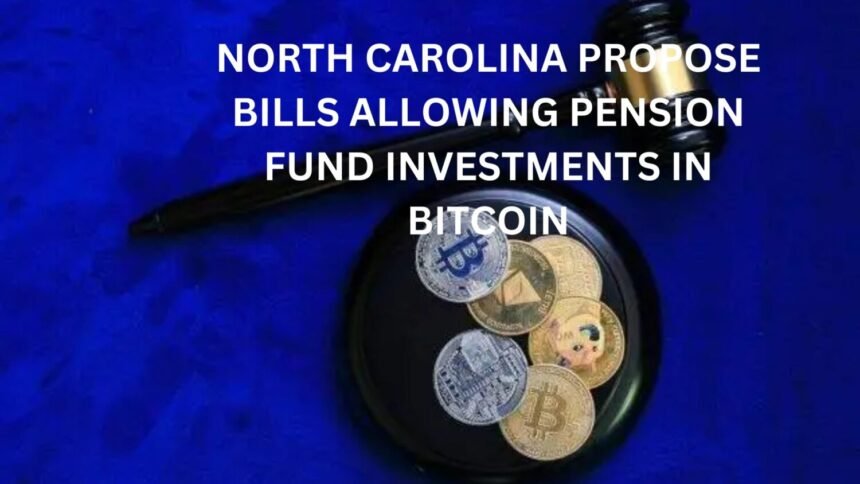Key Takeaways
- If approved, the legislation would permit up to 5% of certain state-managed retirement funds to be allocated to digital assets
- Both bills aim to create the North Carolina Investment Authority, an independent body responsible for evaluating potential digital asset investments and ensuring secure custody solutions.
North Carolina lawmakers have introduced two bills that could allow state pension funds to invest in digital assets, including cryptocurrencies, stablecoins, and NFTs. If approved, the legislation would permit up to 5% of certain state-managed retirement funds to be allocated to digital assets under strict security and risk assessment measures.
House Bill 506, titled the Investment Modernization Act, was introduced by Representative Brenden Jones on March 24. A day later, an identical proposal, Senate Bill 709, was submitted in the Senate. Both bills aim to create the North Carolina Investment Authority, an independent body responsible for evaluating potential digital asset investments and ensuring secure custody solutions.
North Carolina’s bills stand out as they do not set market capitalization requirements for eligible assets. Instead, the new investment authority would determine which assets to invest in based on their risk and return potential.
The bills follow a growing trend among U.S. states warming up to the digital asset industry. In Indiana, lawmakers recently approved a bill permitting state pension funds to invest in Bitcoin ETFs. Kansas is considering a proposal to allow its public employees’ retirement system to allocate up to 10% of funds into Bitcoin-backed financial products. Florida legislators have also introduced bills to permit the state’s Chief Financial Officer to invest up to 10% of certain public funds in digital assets.
In addition to these proposals, North Carolina lawmakers are reviewing a separate bill focused solely on Bitcoin investment. On March 18, Senate Bill 327, known as the Bitcoin Reserve and Investment Act, was introduced by Republican senators Todd Johnson, Brad Overcash, and Timothy Moffitt. This bill seeks to allocate up to 10% of public funds directly into Bitcoin as part of a long-term financial strategy.
If passed, the Bitcoin Reserve would be stored in a multi-signature cold storage wallet. The state treasurer would only be allowed to liquidate the holdings during a “severe financial crisis” and would require approval from two-thirds of the General Assembly. A Bitcoin Economic Advisory Board would be established to oversee the fund’s management.
Earlier this month, former U.S. President Donald Trump signed an executive order establishing a Strategic Bitcoin Reserve and a Digital Asset Stockpile, funded by seized crypto from government investigations.
The development assumes significance as it comes two months after a report that revealed that Norway’s indirect BTC exposure via its sovereign wealth fund has surged to a staggering 3,821 BTC



